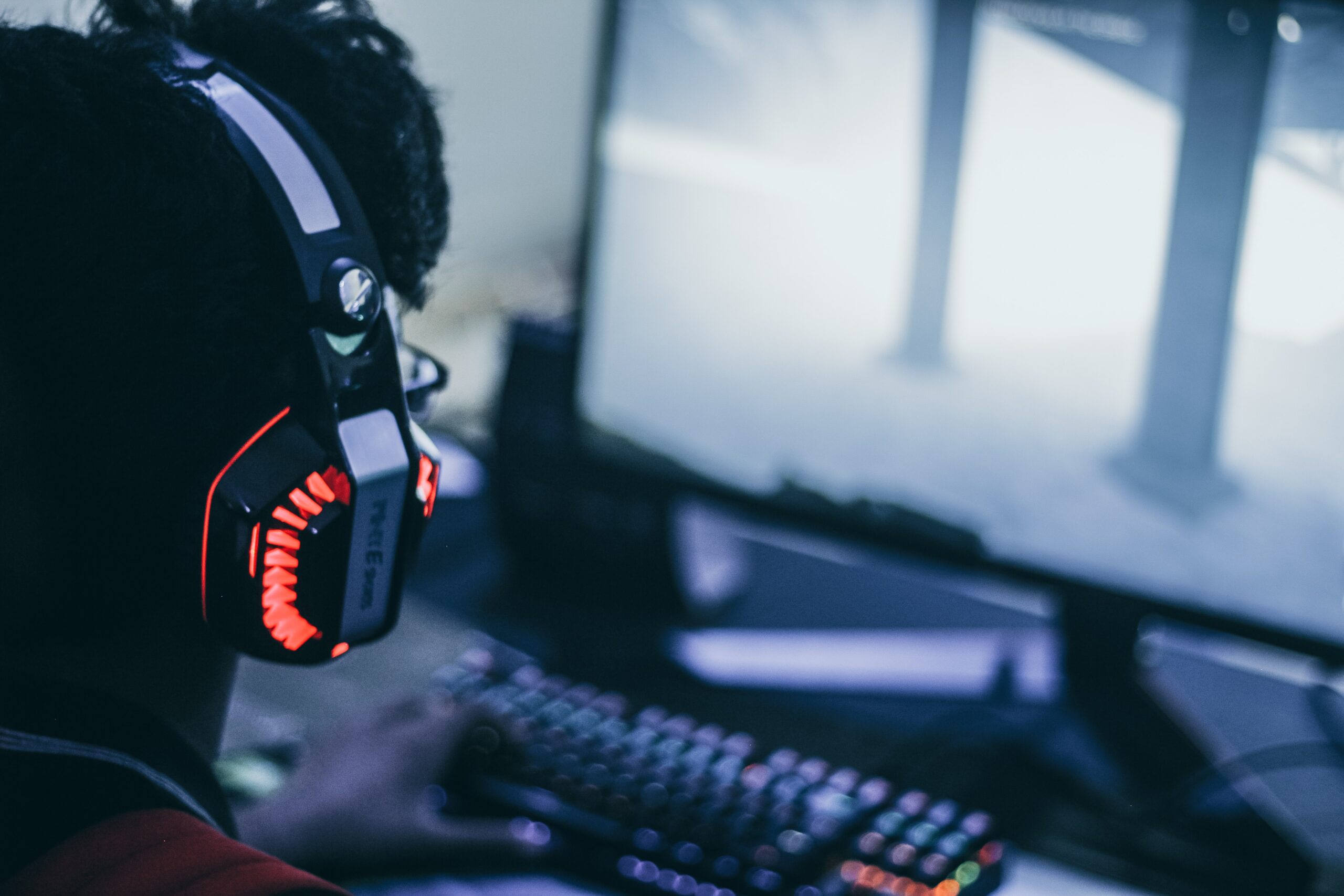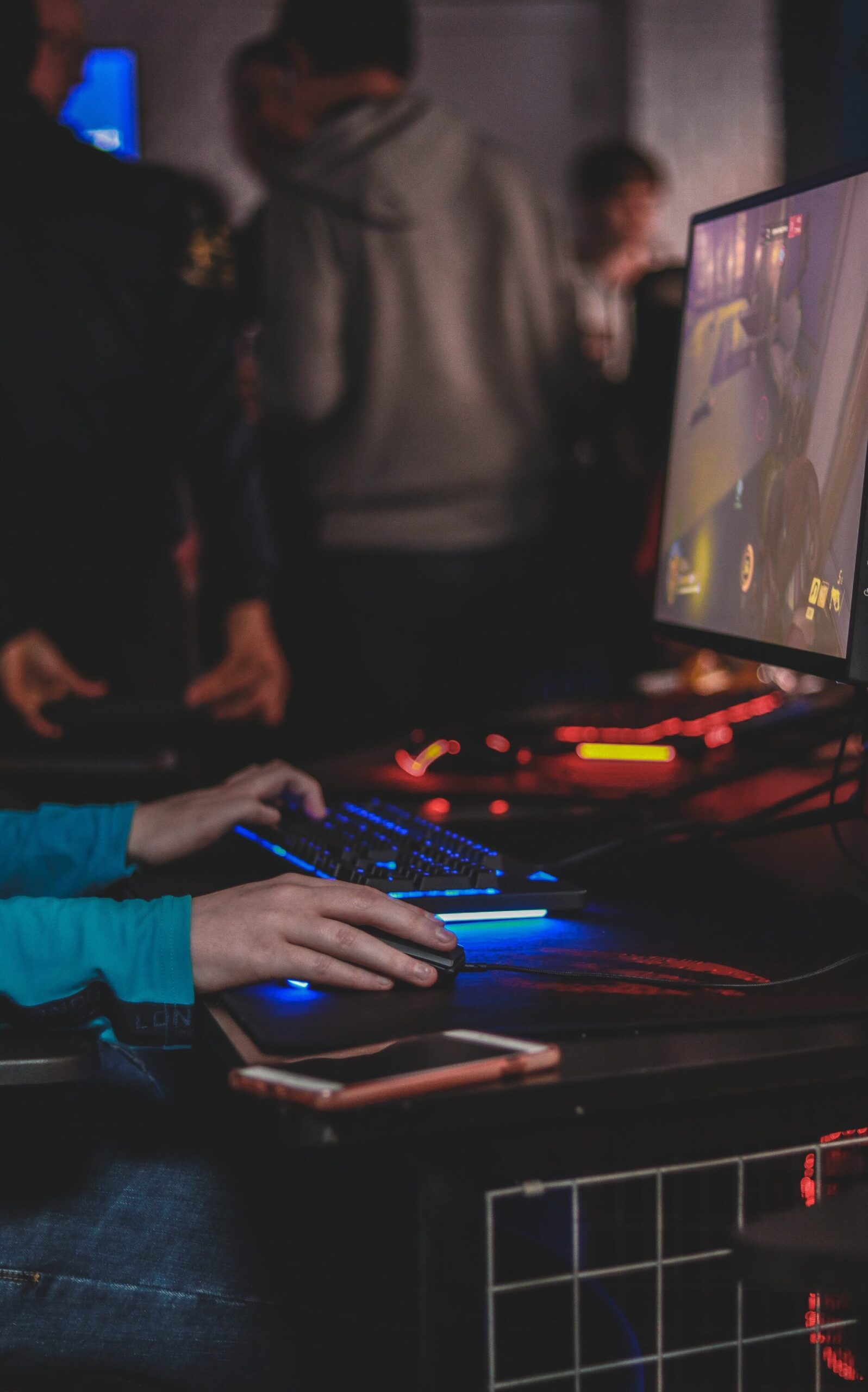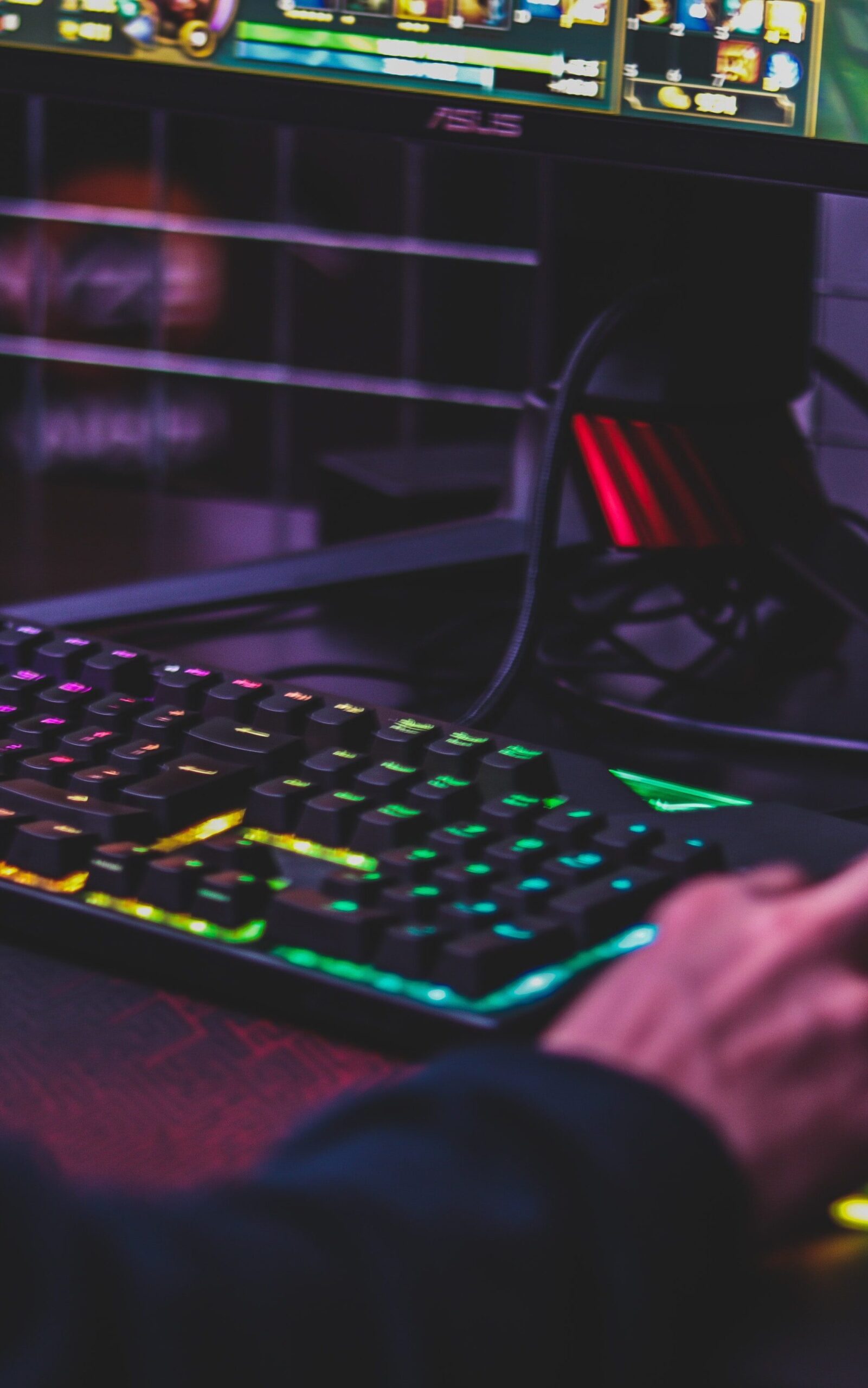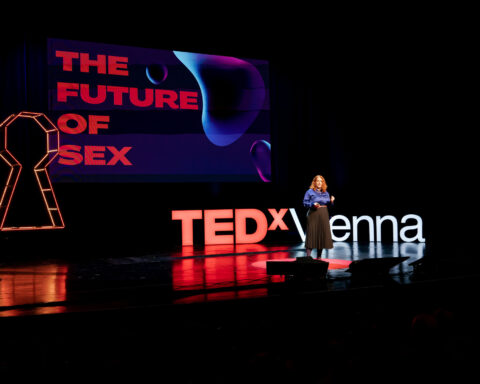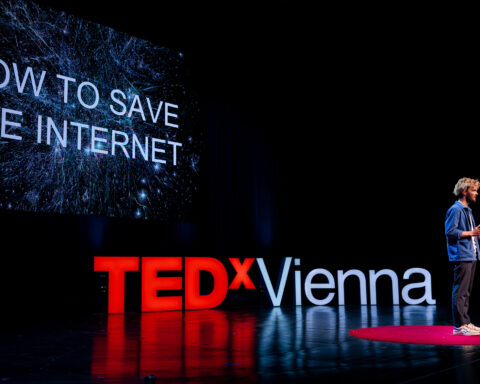Picture a gamer. Chances are, you just imagined a young white teenager with greasy hair and poor social skills sitting in front of their computer, being surrounded by dirty plates, empty soda cans, and chips packets. For the longest time, gaming was perceived to be a rather immature activity – something which did not have the same value as other leisure activities such as sports or playing instruments.
However, gaming is gradually shedding its unpopular reputation, as countless industries now deem it an extremely valuable source of profit. More and more games are adapted into movies or TV series: The Witcher, Uncharted, Tomb Raider or Arcane are only a small selection of movies and series that are based on popular games. The band Imagine Dragons has released two singles for the game League of Legends so far (Warriors and Enemy). In April 2020, rapper Travis Scott held a 9-minute digital concert within the game Fortnite, which roughly earned him 20 million dollars. Pokimane, the most successful female streamer on Twitch, earns around 35.000 dollars per month from playing and streaming games alone. The list goes on.
Overlooked by the public discourse
Sometimes it seems as if the world has become more progressive. Everyone seems to be embracing intersectional feminism and striving for positive change. Then Roe v. Wade is overturned. Afghan women are stripped off their fundamental rights. Another school shooting in the US. Another femicide in Austria. War. Sometimes I click on the wrong videos and fall down the rabbit hole of alt-right YouTubers trying to convince their viewers that men are being oppressed by a world dominated by women and Jews. I see the most disgusting memes in the text channels of a Discord server.
My social bubble of progressive, feminist individuals has been hiding a different, toxic world from me that I wish would not exist. Such toxicity also repeatedly surfaces within gaming, and as much as mass media has seized the incredibly valuable potential of gaming, it seems as if gaming communities have been overlooked by the public discourse.
Anyone who has ever stepped foot in an online game will surely agree that gaming communities can be extremely toxic. It is not rare to encounter misogyny, racist slurs or other kinds of problematic behavior. Especially throughout the last decade, I have noticed that players have become more aggressive and hostile, both towards each other as well as towards marginalized groups, dropping increasingly unsettling comments in in-game chats.
Even though game developers are constantly trying to counter this sort of toxicity, their measures do not seem to be enough. Problematic rhetoric still persists, gets downplayed and perpetuates dangerous ideologies which are often carried into the real world and can have fatal consequences.
I argue that it is due time to pay more attention to gaming communities and finally recognize their potential and usefulness in our fight against oppressive patriarchal structures.
Just mute and play
Discussions about discrimination in games have been going on for years. Oftentimes when e.g. harassment against women is mentioned, the main counter-argument is that all players are targets of ‘flaming’ (i.e. verbal abuse within games) and it is viewed as a normal part of the online gaming experience to get insulted by other team members if you play badly.
Concerns are often dismissed by the suggestion to ‘just mute’ (i.e. tick the option not to show chat messages by a player). What many do not realize is the fact that while, e.g. white cis hetero men do get insulted because of their lack of skill, harassment towards anyone else is very often directed at their deviance from the typical white cis hetero man, as it is not rare to find misogynist, racist, ableist, homophobic or transphobic slurs or jokes.
Currently, the only way to fight this kind of verbal abuse is to report them in-game. If a player is repeatedly reported, they will get suspended or banned from the game. But is this enough? People still seem to use derogatory terms to insult each other, and if banned, they just create a new account and carry on.
A small-scale study carried out by M. Allison McDaniel with the title Women in Gaming: A Study of Female Players’ Experiences in Online FPS Games reveals that participants very often hide their sex and/or gender to evade possible harassment. Around 45% state that they do not use their microphone in games, and 23% intentionally use an alias that does not sound feminine. A small percentage of gamers who identify as female even lie when asked about their gender.
Why do they feel the need to do this, especially when almost 50% of gamers identify as female? What they are trying to avoid is not only verbal abuse, but also undesired advances by ‘white knights’ (often cis hetero male gamers who will try hard to be ‘nice guys’ but are actually aiming for female attention). And before you wave this off as a minor inconvenience, you should read up on some stalking incidents Twitch streamers like Sweet Anita have to endure.
Additionally, even though it has improved over the last few years, many female gamers sadly still see each other as competition – a result of internalized sexism due to patriarchal structures inherent to the gaming community.
Considering all of the above, it is understandable why so many female gamers simply decide to stop playing games online, or do not get into gaming at all.
When things get out of control
Unfortunately, the hate against marginalized groups sometimes doesn’t stay in-game. Patriarchal world views often go hand in hand with an internalization of capitalist ideology and have pushed numerous individuals, especially young men, into alt-right communities, such as Incel forums.
This community/cult, whose members have adopted (among other things) misogynist, racist and homophobic thinking, has produced a frightening number of terrorist attacks over the last decade. One of them is the 2014 shooting on the Santa Barbara University campus in California committed by 22-year-old Eliot Rodger, killing 6 people and injuring 14 others.
In an almost 200-page manifesto, Rodger describes how he was forced to take vengeance on a society that would not provide him with sex. It seems surreal to me that there are people out there who idealize Rodger and aspire to be like him, when his Utopia is literally the plot of The Handmaid’s Tale.
“Es ist bitter, dass wir seit Jahren über das Gefahrenpotential dieser Strukturen schreiben, und wir werden ignoriert.” (We have been writing about the potential danger of these structures for years and we keep being ignored.)
Roland Sieber, quoted by Veronika Kracher in her book Incels: Geschichte, Sprache und Ideologie eines Online-Kults (Incels: History, Language and Ideology of an Online Cult)
Are video games at fault for these terrorist attacks and dangerous cults? No. Is the lack of moderation within online games normalizing misanthropic behavior, which as a result perpetuates alt-right thinking and has the potential to enable violence towards marginalized groups? Yes. Our silence is filled with loud voices of dangerous individuals such as Jordan Peterson and Ben Shapiro, who further justify and legitimize alt-right thinking by using academic language.
GL HF guys
So what can we do? Reporting and penalty systems within games are certainly not enough. Leaving it up to the individual users to search for safe spaces on the internet is not enough.
In a recent YouTube video, Twitch streamer and YouTuber Hasan Piker points out the lack of positive role models and guidance online, and how this causes many people to get “lost in the sauce” on the internet as they are influenced and taken advantage of by grifters who want to spread their own political agenda.
In the context of Incels, author and journalist Veronika Kracher also suggests a few solutions in her book Incels: Geschichte, Sprache und Ideologie eines Online-Kults (Incels: History, Language and Ideology of an Online Cult) on how to achieve safer spaces online and fight misanthropic propaganda.
She, too, argues that ‘deplatforming’ (e.g. deleting and banning problematic forums or accounts), albeit important and necessary, comes too late since the damage has already been done. To ensure consistent and long-term change, educationist Torben L. (as quoted by Kracher) claims we have to work on a societal level, which will call for a lot of political willpower and – you guessed it – money.
One of the most crucial countermeasures Kracher mentions is gender-sensitive pedagogy and aiming to critically deal with masculinity early on. I think that gaming should be part of this discourse, and that ethical conduct within these communities has to be a crucial part of everyone’s education.
With this I would like to urge not only teachers and educators but also everyone else, and especially cis male readers who are fellow gamers, to call out sexist, racist, homophobic and ableist remarks or any other kind of similar behavior whenever and wherever it happens, even if it’s someone on the enemy team.
Your silence means that you are a passive agent within a discriminating, oppressing system and makes you part of the problem. As Kracher urgently suggests, stop being apologetic and call people out. Show that not only are you not agreeing with this kind of problematic behavior, you also won’t tolerate it. Show solidarity.
To people who are not part of gaming communities, all of this might sound scary and might lead to a very negative image towards gaming in general, to which I want to say: please don’t think of it like that. Gaming has been a very important part of my life for a very long time and has given me the possibility to meet and befriend wonderful people from all over the world. Gaming has so much potential, and we should strive to make use of it in our fight towards a better, more equal and safer world for everyone.
Header image by Fredrick Tendong on Unsplash
Reviewed by Juxhina Malaj, proofread by Julia Zmölnig

